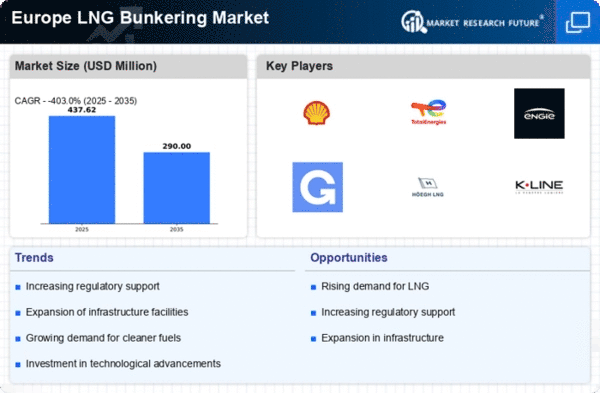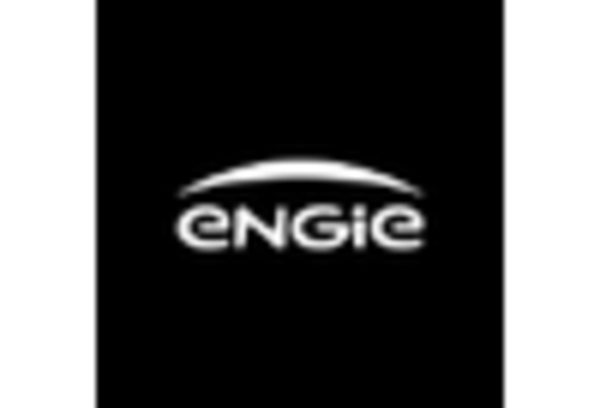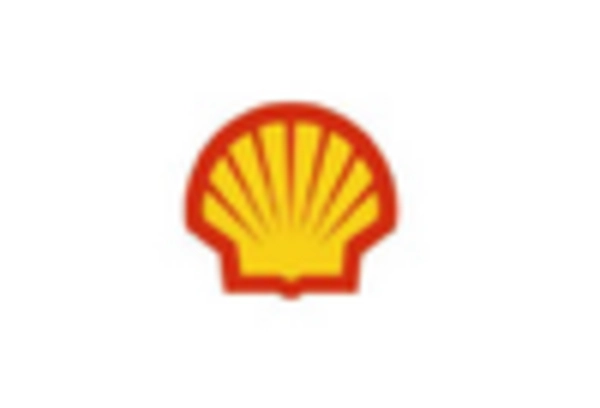Market Share
Europe LNG Bunkering Market Share Analysis
The growth of LNG bunkering, a process of supplying liquefied natural gas to ships, is on the rise, and it's primarily driven by stringent environmental regulations. These regulations are designed to tackle the pollution caused by ships during their journeys at sea, whether transporting goods or passengers.
Ship transportation involves the movement of vessels, and the fuel they use plays a crucial role in environmental impact. Heavy fuel oil, known as one of the dirtiest fossil fuels, has raised concerns due to its harmful components like sulphur and heavy metals, which contribute to pollution. To address this, there has been a significant push towards adopting LNG bunkering as a cleaner alternative for the future.
One key development in this shift occurred in January 2020 when the International Maritime Organization (IMO) introduced a new regulation known as "IMO 2020." This regulation imposed a strict limit on the sulphur content in the fuel oil used by ships, reducing it from 3.5% to 0.50% m/m (mass by mass) for ships operating outside specified emission control areas. In regions with specific emission control designations, the limit was even lower at 0.10%. This adjustment became necessary following modifications to Annex VI of the International Convention for the Prevention of Pollution from Ships (MARPOL).
This regulatory change is a significant driver for the growing prominence of LNG bunkering. With the environmental spotlight on reducing pollution from ship transportation, LNG, being a cleaner fuel, is gaining preference. The inherent advantages of LNG, such as lower sulphur content and reduced emissions, align well with the global efforts to create a more sustainable and eco-friendly maritime industry.
Looking ahead, the LNG bunkering market is poised for further expansion in the coming years. The ongoing commitment to strict environmental regulations will likely propel the demand for LNG as a preferred fuel for ships. As awareness of the environmental impact of traditional fuels grows, the maritime industry is expected to increasingly embrace LNG bunkering as a viable and cleaner solution for a sustainable future. The transition to LNG bunkering reflects a broader global movement towards cleaner energy sources, emphasizing the importance of responsible practices in maritime transportation.



















Leave a Comment